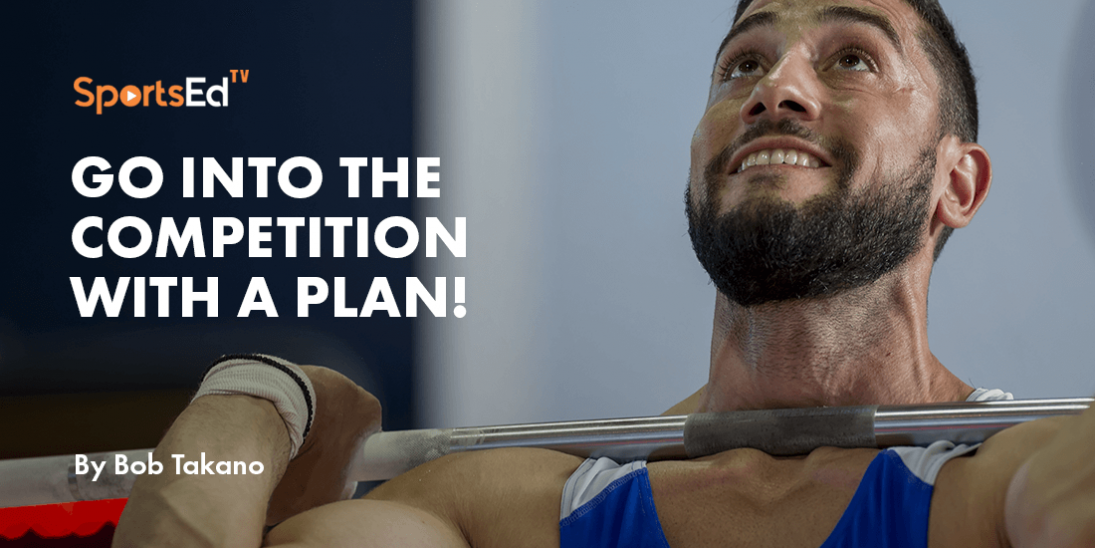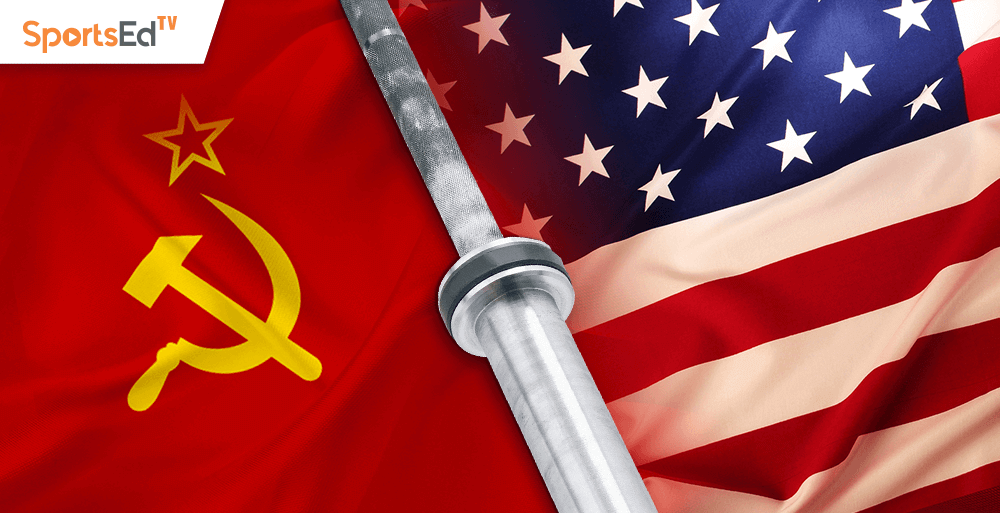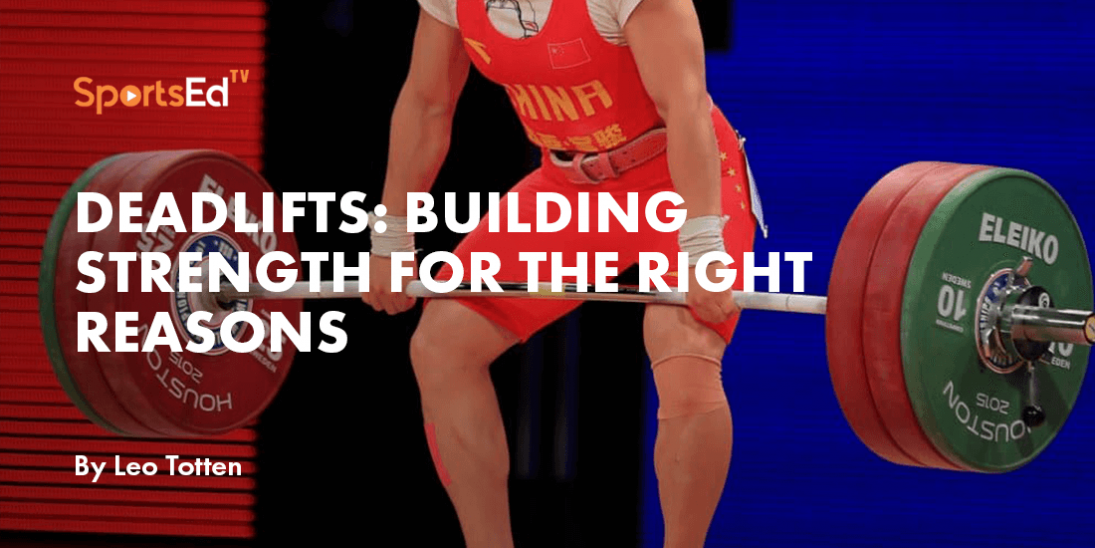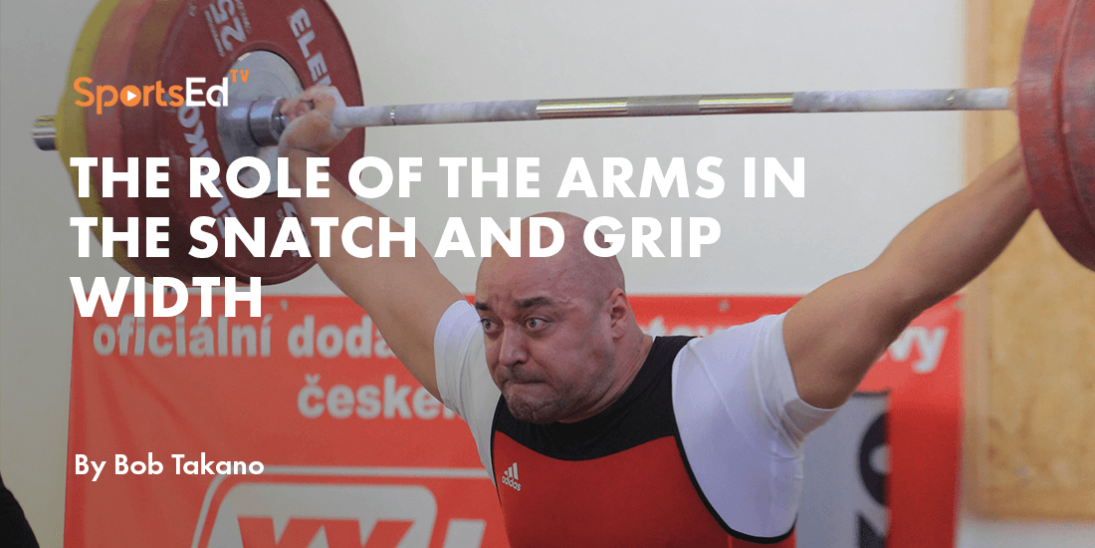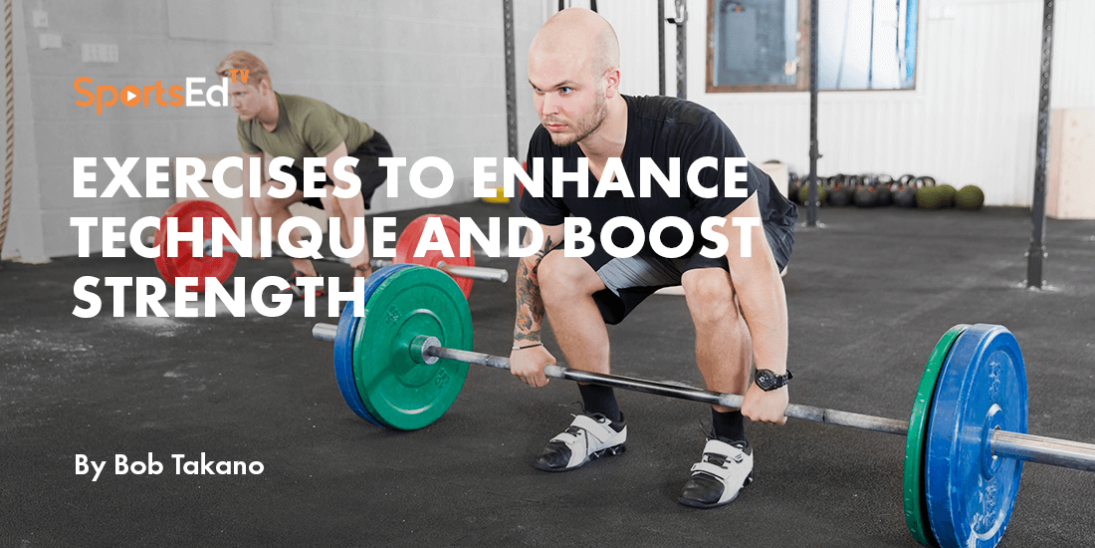Weightlifting
Welcome and thanks for visiting...

Do You Really Need a Coach?
(Harvey Newton, moderator): Welcome SportsEdTV audience to what I think is going to be very exciting blog and Zoom exchange between a handful of coaches. I've tried to create quite a variety of coaches. This could probably go on for hours or days. But we’ll keep it at about an hour.
Last year, Gene Baker and Bridget Raach both emailed me on the same day while I was traveling. They raised several coaching issues that got me thinking that this topic would be a great blog. Since many of our audience may not have access to a club or a team or a coach, let’s consider:
What is the role of a coach, and does everybody need a weightlifting coach?
Panel member Brian Derwin is a 1980 Olympian who started without a coach at Lehigh University. Gene Baker started without a coach in Michigan in the ‘60s. I started in Florida at the same time, without a coach. Our super US. team of the 1950s, lifters such as Dave Sheppard, Tommy Kono, Isaac Berger, Chuck Vinci, Norb Schemansky all were world-beaters without a coach.
I wondered, what happens to someone today who doesn't have a coach? Can they make it to the top or at least the national level? I tend to think they can, but I sought out a variety of coaches to contribute opinions.
Today, weightlifting coaches are a hot topic. It seems almost everybody is a weightlifting coach, at least within our sport’s community. Either they've taken a course, or they have a website and are willing to take money to provide information. That may be a good idea, and I don't want to downplay it. This fits into what USA Weightlifting membership surveys have suggested in order to regain international competitiveness.
The three primary survey suggestions: 1) We need more athletes. Having just had 1800 athletes at an American Open qualifier, I'm not sure greater numbers are the answer. 2) We need National Collegiate Athletic Association recognition, and scholarships. That's very true, but it's not going to happen in my lifetime. 3) The third key to success is coaching, particularly utilizing famous international coaches.
Here I’m talking about our male weightlifters. Our women have done a phenomenal job. They're winning medals at the Olympics, which is what we want. I left as national coach in ‘84 (male team only) to focus on administration. Soon after, we had international coaches, including Olympic medalists. This has been the case from 1990 through the present. None of this has brought much in the way of male lifting results.
That's the basis for today's talk among this group. I'm going to sit back and let these fine coaches explore the world of coaching as they see it. I'll ask each to introduce themselves and give you a background; let's go alphabetically. Spencer, you're up first. And Bridget (Raach), sorry, today ladies are last.
Introduction
(Spencer Arnold): My name's Spencer Arnold. I'm the head strength coach for Power and Grace Performance here in Atlanta, Georgia. It’s our weightlifting club. I coach competitive weightlifters all over the world; also, I’m the head strength and conditioning director Hebrew and Christian Academy. So, I kind of working both angles.
(HN): How about your background as an athlete?
(SA): I was a little skinny 15-year-old kid at a high school with a great weightlifting coach. I picked up a barbell there, tried lifting for other sports. Turned out I was better at weightlifting, so I competed until my coaching took over. Now I just lift recreationally. But I competed nationally and internationally, won some national medals. I learned a lot about what not to do during the process.
(Gene Baker): I'm Gene Baker and live in Troy, Michigan. I have not been actively coaching for about 30 years. But in the 1980s I was the national coaching coordinator for the US, as well as a coach of my own team. One of the things I was most involved in was coaches’ education. I helped bring about the first set of coaching manuals and videos. Since then, I have been active in coaching high school track and football. Right now, I coach my two grandsons. They were the genesis of my comments to Harvey, because I took them to Nationals last year to watch the meet. One of them asked me, “Where is the coach? It sure doesn't look like he does much.”
At that point I had a flood of memories of things about coaching local meets up through internationals.
(Brian Derwin): I started lifting in 1972 while at Lehigh University. John Garhammer was there and helped me get started. I subsequently graduated and trained on my own. What a disaster. At a meet in South Jersey, I met Bucky Cairo, who was a coach of Belleville Barbell Club. He invited me to train with them. We worked for about six months ironing out two big flaws and after five years I made the 1980 USA Olympic Team.
This is largely due to the fact that I had decent coaching, unlike coaching myself, which was fairly abysmal. I got involved with Gene and Harvey with the initial coaches’ manuals. Since then, I coach voluntarily. For years and years, I haven’t made any income from coaching. We have a small club in Minnesota. I grew up in New Jersey, so you'll see me be a little more upfront today than Minnesota folks.
(Guy Hornsby): Hi, I'm Guy Hornsby. I'm an assistant professor in our coaching and performance science program at West Virginia University. I coach our USAW team, West Virginia Weightlifting, which is also a WVU sport club. I kept those purposely very similar. I spent eight years at East Tennessee State University with Mike Stone and Meg Stone. I was a thrower for Meg, and during that time Mike was my strength coach. Through my five years of grad school I focused solely on weightlifting. Most of my research is strength-power research, and I have a lot of work that's specific to weightlifting.
(Bridget Raach): Good morning, I'm Bridget. I'm in Camus, Washington. I have a deep and varied history as an athlete, competing collegiately in volleyball, and internationally in open water swimming. I met Harvey in graduate school in the University of Colorado, Colorado Springs, while he was working at the Olympic Training Center. I coach weightlifting here in the Pacific Northwest (Region V Weightlifting) and some remote athletes as well. Lately I've been deep into coaches’ education. I teach at the local community college. I've been the head strength coach there as well, and been a mentor, representing USA Weightlifting, for the International Olympic Committee.
(HN): A varied group, which is what I wanted to see today. The first question we threw out is: What's the criteria for a good weightlifting coach, and how do they achieve that? Gene sent me a list of 30 or 40 responsibilities that a weightlifting coach might have. I agree, it helps to have a coach do this for the lifter. Can a lifter learn to do some of this on their own is a key question?
(BR): When our world-beaters were lifting at the international level in the 1950s, did they have representation?
(BD): Gene, correct me if I'm wrong, but York Barbell was the only club of any significance. And I like to talk about the things our folks did in the ‘50s vs. what happened in the Soviet Union. In World War Two they lost 27 million people. This is not an apples-to-apples comparison. It's much like seeing the Ukrainian training site turned into rubble. So, I think that there are other factors in there somewhere.
(GB): Yeah, York from the 1930s until the late ‘60s, maybe into the ‘70s, was very important. York was the center of most information. I used to call it Mecca because people would make a pilgrimage and learn from the lifters there.
(BR): So, when Tommy Kono was taking his last attempts, was a training partner counting his cards or was there a coach? Did they have representation at the meets?
(HN): There was always a “coach,” but they weren't trained coaches. Bob Hoffman owned York Barbell Company and he paid the fare to get the people to the meet. He usually assigned himself coach. There weren’t necessarily marshal cards or computer screens like today. You lifted when the time was right.
As Brian alluded to, there are several reasons why the US dominated post-WW II. We started to slip when the Soviet Union, in particular, did two things. One, they created a cadre of educated professional coaches, and two, they applied sport science. Neither of those were being done in the US at that time.
(GB): If it was being done, it was very haphazard.
(BR): I'm sorry if I took us sideways, Harvey. Maybe we need to restate the question.
(HN): I just wondered what the criteria for a good coach and how is that obtained?
(GB): There's a ton of things on that list. A good coach knows a little bit about a lot, covering the entire spectrum of coaching. A coach has to be a good teacher. He or she has to understand the lifts and be able to translate that information to the lifter.
I am a mechanical engineer by profession. I read everything John Garhammer published. I also took a couple of years of Russian in college. This taught me a lot of things, such as the back is at approximately 27 degrees when the bar comes off the floor. But if you tell a lifter that, they look at you like you have three heads. So, a coach has to know those things, but also be a teacher and translate knowledge into experiential feelings.
A lot of people are talking now about the shift of weight on your bottom of the feet. That's probably one of the most important things a coach needs to teach lifters.
(GH): You mentioned sports science, a term that's used all the time now. What I view is the core of sport science actually gets lost. This goes beyond just weightlifting, developing weightlifting coaches, but also developing coaches in general. There are few academic programs that really focus on sport science. Go back to 2000 when Mike Stone, Meg Stone, and Bill Sands had the seminal paper Downfall of Sports Science in the US. That was based on what they'd experienced and seen after 20-30 years in the field. There are some programs popping up, which is really exciting. I'm particularly excited about programs that blend hard science, kinesiology routes, and pedagogy.
I think some countries have been doing that for a really long time. Now we have a lot out there on social media that deals with sports science, some is exciting, like athlete monitoring, and different technologies. At the core of sport science is coaching, I think it's really important for developing younger coaches.
(SA): I think a lot of the coaching protocols and coaching systems can be learned and taught along the way. I'm a byproduct of that, having had 10 different coaches invest in me. I was coaching the whole time that I was learning. I think the base is a deeper concern for something other than yourself. I tell coaches, have a concern for something besides themselves, whether it's USA Weightlifting or their athletes. That needs to be very high on the list and should drive most everything else.
Gene, you mentioned the center of pressure of the foot being popular right now. I learned this at a camp in Florida from Harvey Newton. I took that exact diagram and went on the road. I ended up as the weightlifting guy on the seminar series all over the world. We need an ability to recognize what we don't know and be willing to admit that. Don't try to teach something you don't know!
(GH): Spencer hit on something that's important that I didn't appreciate until I got to WVU. Right next door to me, with a long history in coach education, is Kristen Dieffenbach who’s done a lot of work with U.S. Olympic Committee on sports science coach education. This is the first place I've been with classes on coaching professionalism. And we have classes like principles and problems of coaching and those types of things.
(HN): Good points. If you're going to have a coach, they need to be well prepared. If an athlete is on their own, how much of this preparation can be accomplished? Often, if you are your own coach it’s fly by the seat of your pants. The Internet has its pros and cons. SportsEdTV’s goal is to provide solid information from professionals such as yourselves so someone can get legit information, not some bogus online promo piece.
Weightlifting coaches have three primary responsibilities: 1) teach technique, 2) create training programs, and 3) competition coaching. As Bridget pointed out, things have become a little more complicated today with a one-minute break rather than three minutes as in years past. Coaches, or athletes, if they were on their own, need to be on top of this. Gene provided a shopping list of coaches’ responsibilities, including logistics, travel, the weigh-in room, interfacing with officials. What happens to the poor lifter who doesn't have a coach? Does anybody lift today without a coach?
(SA): Yes, especially locally. One coach will end up coaching the lifter. It happens at national meets.
(HN): In our day, it was often your training partner. It depended on whether you were part of a real team or club, or whether you're there on your own.
(BD): Coaching needs to be done in a positive way. I’ll say, this was good, that was good, here's what we want to change. Some people may take in the last point and go negative on themselves. Whether or not you lift properly won't get you into heaven or hell. Keep it positive. I think the second thing is, especially at a meet, stay calm. There are so many things that can happen that are not helpful. I think the coach and the athlete need to be positively focused on what they're doing.
(VB): I was not a coach, but I was a lifter. I started at 12, so without a coach it would have been extremely difficult. At 14 I lifted in the Swiss Junior National Championships and finished seventh against kids up to 18. I was pretty proud of it. But it's due to my coach. After he left, I was really down for about six months.
I would like to hear about the mental aspect, what I call the Ted Lasso Effect.
(HN): Yeah, that's a good point, Victor. I think we have today, by accident or design, an athlete much more dependent on a coach.
(SA): I picked up a barbell at 12 years old in my basement after watching the Olympics. I wanted to be like Pyros Dimas! After my dad saw me attempt to snatch in the basement, it was decided I needed a coach. I couldn’t actually start the lifts until 14 when I got an actual coach.
In American weightlifting today, coaches, myself included, have been given great opportunities to be depended upon by their athletes. That's a double-edged sword, right? It allows the athlete to be less independent, which is not always great. It's pressure, but an honor, for the coach to do things for their athletes, allowing them to just lift weights. We have a ton of resources to allow us to be coaches in ways probably not available 30 or 40 years ago.
I'm on a call every single month with all of my athletes and the USAW’s Pyros (Dimas) and Mike (Gattone), and USOC biomechanics staff reviewing training lifts for three hours. That's a resource provided for free for my athletes. We gain so much knowledge from that. My lifters are dependent on me to be able to process that knowledge and push it to them. They are on the call and can ask questions.
(HN):That's quite a bit of progress. Gene, you and I talked earlier about Ryan Crouser.
(GB): He's got the world record in the shot put and has won a couple of Olympic gold medals. I watched his YouTube channel when he was working on a technique day. He has a big tarp and a net hung up by one wall into which he does all his throwing. Just him and the videographer. No coach. He's at the top of his sport. But he’s been immersed in the sport all his life. He’s able to feel what he’s doing and make corrections.
Some of you are working with remote athletes. Like Spencer says, analyze the video and it's like being there. A lot can be done by yourself.
(HN): Guy, you're in a unique situation with a university team. You probably have some complete novices that choose to go out for the weightlifting team.
(GH): Most who join our club are brand new to the sport. Some arrive at WVU as freshman and have been training and competing in the sport. But mostly we deal with complete beginners. That's a whole different process. Something very valuable that a coach brings is a long vision. As we all know, weightlifting is a sport that even for those with talent, takes a long time to get really strong.
A lot of grad students come with weightlifting experience, often having been coached by colleagues of mine. Probably the thing that I was least prepared for was the management side of things. The weightroom is in a CrossFit gym. I'm a professor at WVU. I was pretty prepared with periodization and technique, but I'm still learning the management side of things. This is all part of the environment of the gym.
(HN): Brian, I don't know how you get athletes in Minnesota.
(BD): We do it just like the British Navy. We go to all the bars, make sure they're all shitfaced, and then drag them out and make them lift.
(BD): Really, we get most of our folks just from seeing our website. They're interested in lifting and come over to talk to us. We don't have huge numbers. I think it is hugely important that we’ve accomplished having a good vibe in the gym. We have responsible, mature people. They're not trying to get a date. I'm real upfront with them about how we train, who I am, etc. This not a big moneymaker. I wind up paying about $200 a month for the space.
(HN): Do your athletes pay?
(BD): Absolutely. Two signed up yesterday for a year's worth.
(HN): Bridget is in the same boat in Washington State, not exactly a hotbed for weightlifting. Each of you probably has a totally different perspective on how this is happening or how to best make it happen.
(BR): The majority of my lifters come for the sport of weightlifting. Some have had bad experiences with other coaches. They paid for a training program, but the coach didn’t pay proper attention. Some saw my lifters at a meet and figured they were different. An inquiring athlete or parent may come to me and say, can we work with you? I will train athletes in my garage, or sometimes I go to where they are. That's a touchy subject because, as you know, if there's a whistle and clipboard someone may insist that they be called “coach.”
(SA): We're a little different. I sell this to the world by God's providence or luck. I've just had some really great weightlifters that trusted me with their training plan when they were teenagers and later became Olympians. The world notices because of social media. I was forced to create a training location because they were going to the Olympics. Lifters have had to move to me.
Once I created a location, people wanted to be on the team. It became important for me to create a professional, family training environment. We care about each other a lot. For team members living elsewhere, it's a requirement to be on-site three or four times a year for in-person training sessions.
Many people will come spend a week here. Once they see the environment, they want to be here full time. This is especially true of young, single lifters. Our club has grown mainly through the success of our lifters in competition. Lots of growth can be dangerous. I spend about 50% of my time investing in my coaching staff, making sure they don’t become whistles on a clipboard.
(HN): Coach Arnold, at the Olympics, were you part of the staff or a personal coach? How did that work?
(SA): Pyros and Mike were the staff members. Personal coaches were allowed In-country a few days before competition, then had to leave the day after their lifter performed. Due to the number of lifters I coached, I was there for two and a half weeks as a personal coach. When Kate finished, I came back with her.
(HN): Management is key. At a past world championships, I had a national champion and Olympian who shall remain nameless. He didn't have a coach, but he was coachable. He gave me a card with 27 permutations of what he could total (and not today’s 1-kg increment). All I could say is, let me know what you want to for an opener? He only made two lifts, which was unfortunate.
I appreciate the analytical lifter that wants to be in control. Today, we have athletes that say, Coach, what do I need to do? There can be a huge variation in personality. Weightlifting has been known to attract some strange, independent personalities. Working with weightlifters is not an easy job, but it is a very rewarding experience.
(SA): Access to good weightlifting coaching is the highest ever in our history. A coach may be as simple as an email or a message. Find the pedigree of the coach that matches your goals. If they're watching SportsEdTV, they have access to a coach (Discover). I don't think numbers are an issue. How do we get the right coaches coaching the right athletes, that's the question. I know many great athletes that have the wrong coach. Some good coaches don't have the right athletes. Improve US male weightlifting? How do we get the right coach with the right athlete?
(HN): Good points.
(GB): I have always felt that weightlifting should have different targeted coaches. Some coaches are great with young beginners, some do best with intermediates, some excel with international competitors. In my day, a coach coached everybody. I heard Brian say that he took anybody who walked in the door.
Similar to what Spencer is saying, we need coaches who are specialists to teaching young lifters, people who are specialists at teaching intermediate types. And then we've got our elite group. Again, in my time the big deal was making an international trip. Everyone wanted to coach the elite lifters that competed internationally. That’s not always the best situation.
(HN): Some coaches don't want to hand off. We have big egos in our sport, and certainly within the coaching ranks. Bridget, any final thoughts?
(BR): I'm definitely echoing Spencer's comments and Victor’s Ted Lasso reference. Finding the coach that cares about the athlete, building the club, getting sponsors and building it out. Gene mentioned building the depth of specialty coaches. Our sport remains on the fringe. We are among the oldest of sports, yet people don't understand weightlifting versus weight-lifting. Let’s capitalize on that enthusiasm for our sport.
(HN): Good point. Brian, anything?
(BD): I understand having multiple coaches. Certainly, in my situation, that's unlikely to happen because we just don’t have numbers to support it.
(HN): We're not a totalitarian state, so we can't quite use the engineer in Gene to make it work.
(BD): When we had the Colorado Springs Olympic Training Center resident program up and running, the thought was coaches got athletes up to that level. The coach still got credit has having started the lifter, but they did not move to another club. I've had two athletes reasonably talented say, I want to go to Nationals, I want to travel internationally. They got hung up on online video stuff and went to other clubs. Ultimately, they disappeared. I think that's a little different than it used to be. We had Colorado Springs where you could hand them off to somebody more scientific, with a higher level of coaching.
(GH): At WVU I've definitely been able to take advantage of the increased popularity of the sport and cultivate a pretty good gym situation. And I don't think it could have been done t0 or 15 years ago. It's unique to be a university sport club. That's a sport that is not in NCAA yet, but it is in the Olympic Games. There are students that choose WVU because of the weightlifting club. I've been able to have a grant with the county to provide graduate assistantships in the form of a head strength coach to three local high schools. They’re not always involved day to day in the weightlifting club, but many are. This creates interest in our program and the possibility of going to school at WVU. One such lifter, a high school thrower, won silver at National Juniors in 2020. Another benefit is attracting grad students that want to be weightlifting or strength coaches.
They keep me on my toes and sometimes notice things that I don't. It's one thing to be in front of a lectern and have a PowerPoint, but to get to work with them is great. We were just in Columbus coaching together and it created a really nice situation. There are a bunch of good coaches in higher education. I'm kind of biased on this but look at collegiate clubs and what they can offer the sport.
(HN): Victor, please explain to this group how they can join us with Discover?
(VB): First of all, thank you for your time today. I'm going to send you a personal email. We are launching something like a yellow pages, called Discover. We get emails asking, where can I find a coach? As senior contributors, you have a free lifetime membership on Discover where you can put pictures, upload videos, etc. By the way, Spencer, one of our most viewed videos on TikTok (8 million views) is Kate at the 2019 World Championships.
With Discover you'll be able to upload videos, showcase your facility with pictures, etc. You can list as a remote coach, if you wish. Videos are rated and viewed by the public.
You're going to get an email from me very soon, just follow up, follow the instructions on the email. Thank you so.
(HN): Thanks to all of you.

